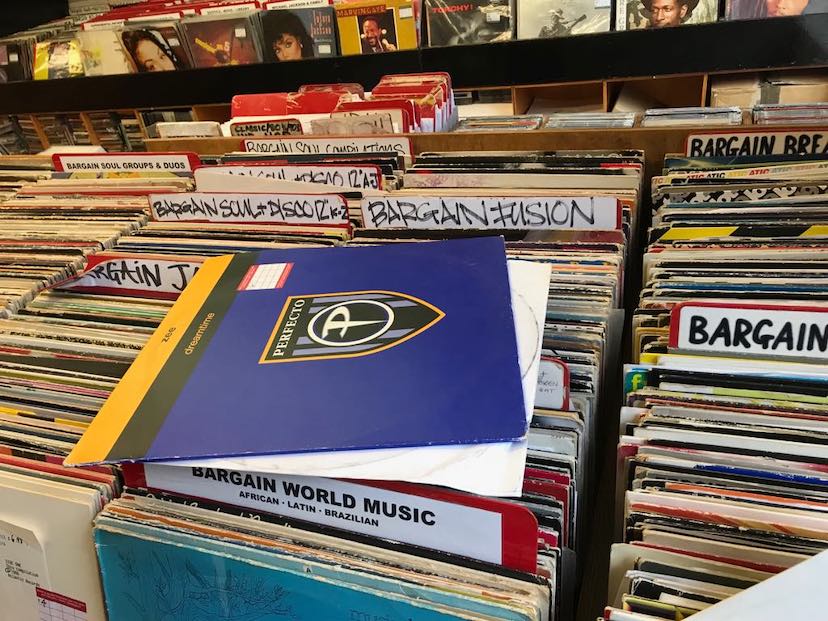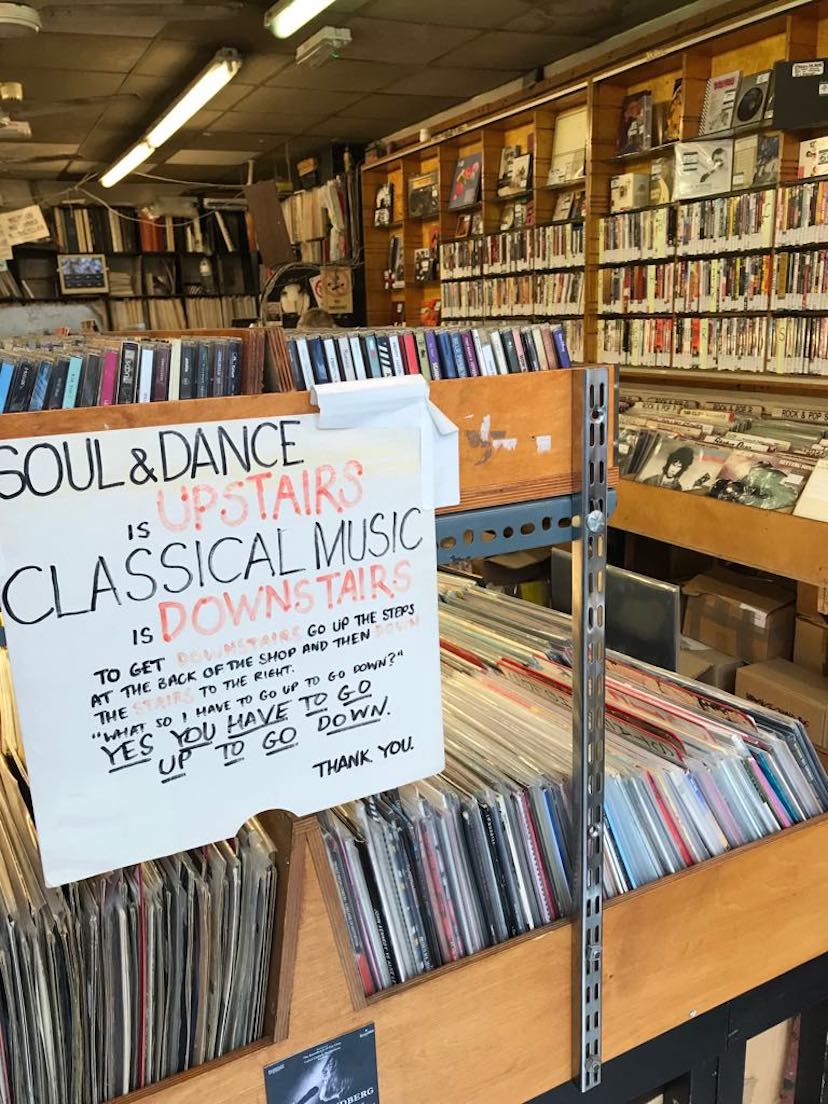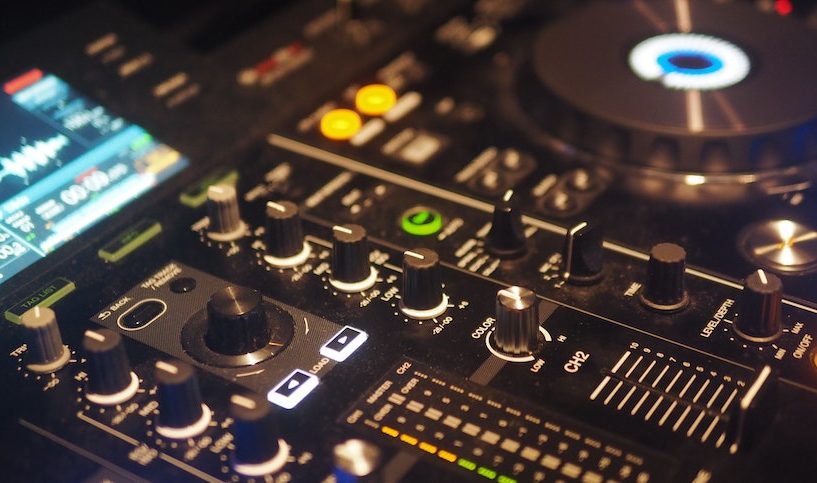Its 2018, and the digital age. Everything is instant, more accessible, streamlined, faster and at your disposal. There are pros and cons to this-on the one hand, it means that everybody can try whatever they like, with relative ease. On the other hand, certain things are becoming oversaturated. DJing is one of those ‘other hand’ scenarios.
Everybody and their grandmother is a DJ these days.
Back in the late 80s and through the 90s, things were very different. Equipment was expensive and heavy, and required months of saving money to buy (for the average DJ at least) including solid metal casing to transport. Now, all you need is a basic laptop and controller, items that can fit in a backpack and cost next to nothing. There was no internet, or the technology even, to cheaply download a night’s worth of music in half an hour and put it all on a USB that fits neatly in your pocket. Your playlist would come from weeks, if not months or years, of trawling shops, digging through shelves and crates of records, spending hundreds of dollars (or GBPs, in my case) in the process. And then getting to carry them all around, 10 KG or more per case.
While I’m a fan of the new methods and do use digital myself now (alongside vinyl), what I’m saying is, you had to be really committed to wanting to DJ. And to those of us that really did want to become DJs, all of the above hardship was, and more so now, part of the charm and what we love about it. Us oldies often get together and reminisce about the good old days. Not to say that anybody that’s just starting nowadays doesn’t have the same drive or passion, but the ease of the digital age has made it so that many can half-heartedly enter the game and appear on flyers and headlining events, based on their pre-DJ life status and nothing more.

Source: bazaar
This extends to the likes of Paris Hilton, somebody with no musical talent (that should probably just read ‘no talent’), but already had a platform, so when she decided to become a DJ, the bookings were already there. There are many videos of her ‘performing’ that show various discrepancies while she goes through her farce, such as certain vital equipment not being turned on, the faders not being moved according to the audio, even music being mixed while she takes selfies and is away from the mixer. Her sets are pre-recorded. She isn’t the only one either–there are many talentless button pressers that stand there, simply doing the motions of mixing and getting paid top tier amounts of money for it.
This is what happens when something becomes mainstream or cool, it gets taken over and altered by the trendy crowd; the sort of people that would pay money to see somebody with no musical talent mess around on stage and play a set pre-mixed by somebody else, rather than an actual DJ with talent. It baffles me.
Thankfully, this only exists in a small area of the DJing world, as most genres are run by old schoolers that wouldn’t settle for such nonsense. I hope that doesn’t change anytime soon.

Source: bazaar
With that rant over, the first thing I would say to anybody wanting to become a DJ is to do it for the love of music, and not have any hopes of becoming rich and famous. You’re really only going to succeed as a big-time DJ in two scenarios. Firstly, if you can produce a hit track (be it mainstream or just within your genre of choice), which naturally gets you the attention, and then the bookings will come. The second way is that if you go viral with your DJ skills, which means you better have something unique or outstanding to show! It can be done, but would only come to those already dedicated to their craft and not to anybody in it just for the money–a lot of hard work is required!
So, what is the most important thing to consider to become a good DJ? The basic requirement upon which everything else is based? Knowing how to use every piece of equipment on the market? Getting the PERFECT mix every time? Being able to scratch?
Nope. Actually, the main skill required (and the first you should master) to become a good DJ is simply knowing your music. Each and every track you play, you should know like the back of your hand. Be it rock music, dance music, Arabic music, movie soundtracks, classical–it really doesn’t matter, as long as you love it, believe in it and know it. The rest is easy!
Some of the best sets you will ever hear will have some bad mixing, perhaps some distorted sound or bad levels. But the tune selection and timing, will be perfect, which is what makes it your favorite set. This is all out of knowing your music, which evolves (with practice while playing live) to feeling and reading the crowd. It will enable you to drop the right track, at the right time to send those listening into a frenzy. You could have Paris Hilton behind the latest and greatest set-up that anybody has ever seen, or you could have a real DJ that knows their music with just an iPhone and a DJ app and the difference would be black and white (in favor of the real DJ, of course).
For anybody wanting to DJ, this is a very basic and natural requirement; it’s also easy since you’re playing with music you love, and would be listening to all the time anyway, which means you’ll learn each track quickly. But it’s still important to note because those new to the hobby, or those easily influenced can become confused by conflicting opinions or comments; often people online will stress how important it is to mix ONLY with vinyl, or to NEVER use the sync button, or how your genre of music is trash/commercial/boring etc, but none of that matters and for the most part, it’s simple snobbery. If you’re ever lucky enough to speak with one of the top DJs that’s been playing for years, they will tell you the same.
Also, just play what you love. Don’t feel that you have to play certain tracks, or genres, to suit anybody. Either you’re going to DJ as a hobby at home, or for friends, in which case you’re only going to play and experiment with tunes you like anyway. Or you’re aiming to play out, or on radio or stream, so stick to what you love and let the right crowd come to you-don’t sell yourself out to gain followers or listeners that will simply leave when you inevitably get bored of playing specifically for them and switch to your own tastes. This is otherwise know as keeping it real!
Next month we’ll take a look at the second step- choosing your formats and equipment. Until then, listen to, learn and enjoy your music!
If you have any questions, or want advice when it comes to anything in this series of articles, mixing, equipment or anything else to do with DJing, you can hit me up on Instagram @timmybdj.
Featured image by bazaar staff
Part 2:
Part 3:











